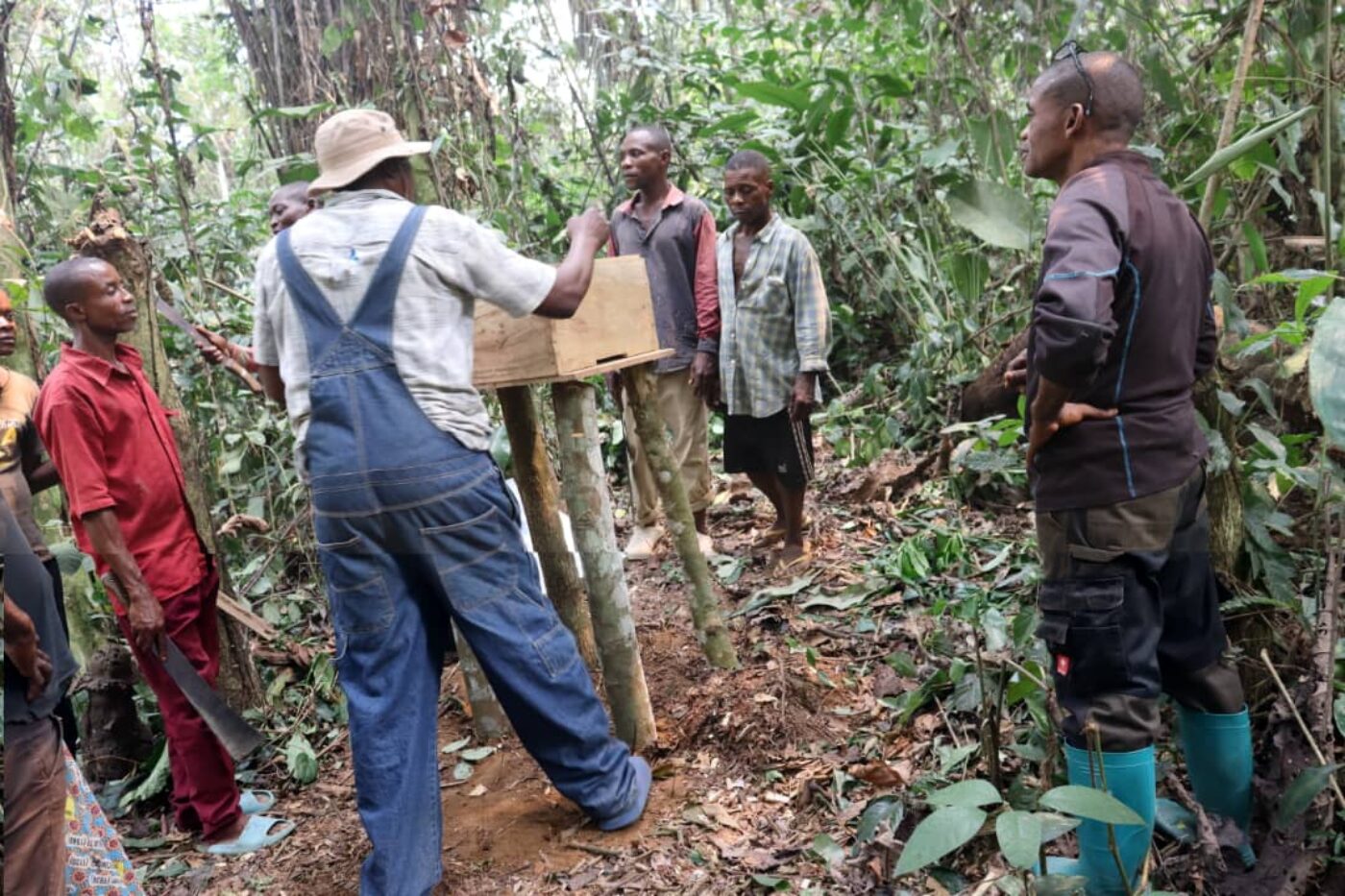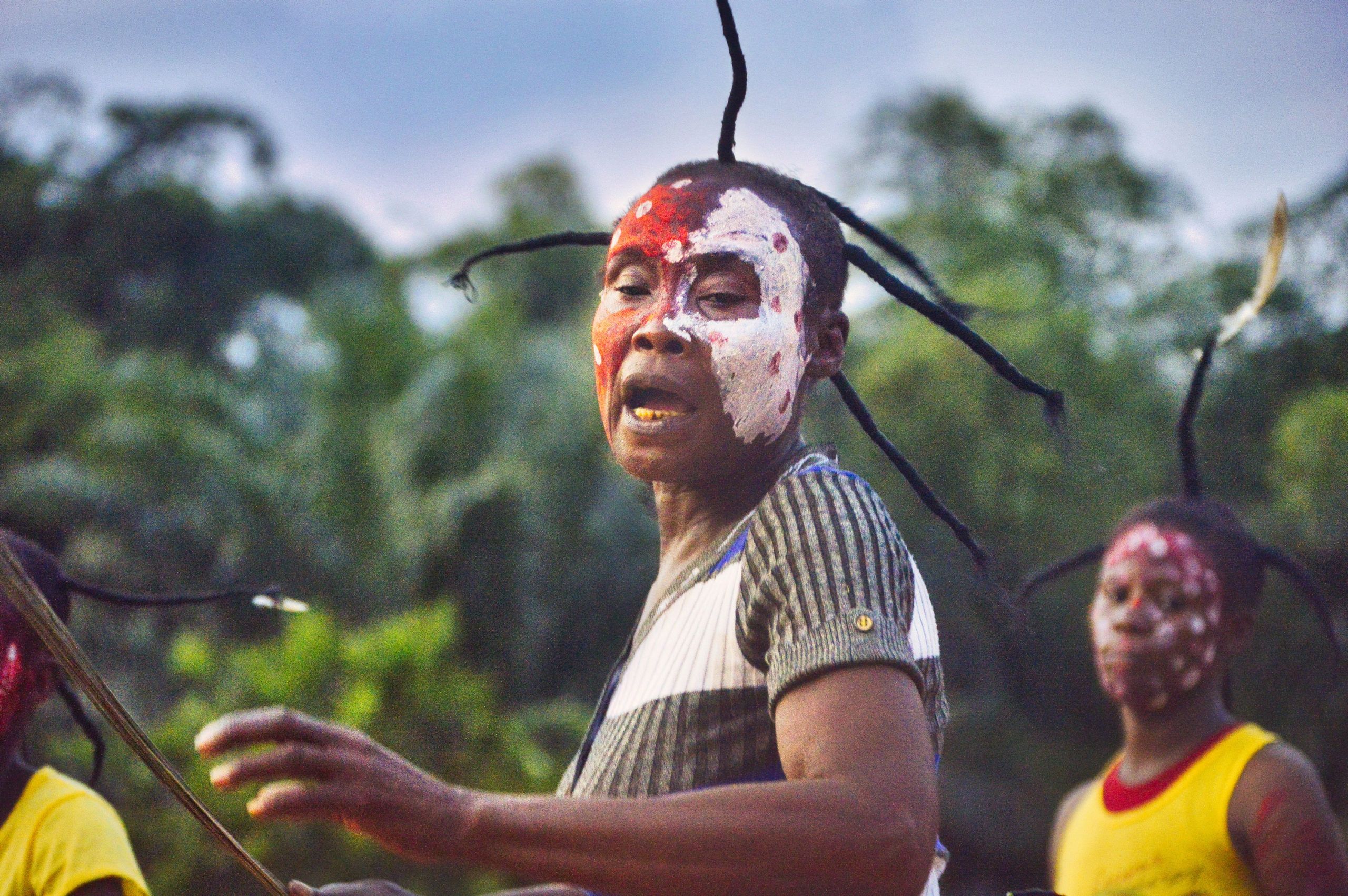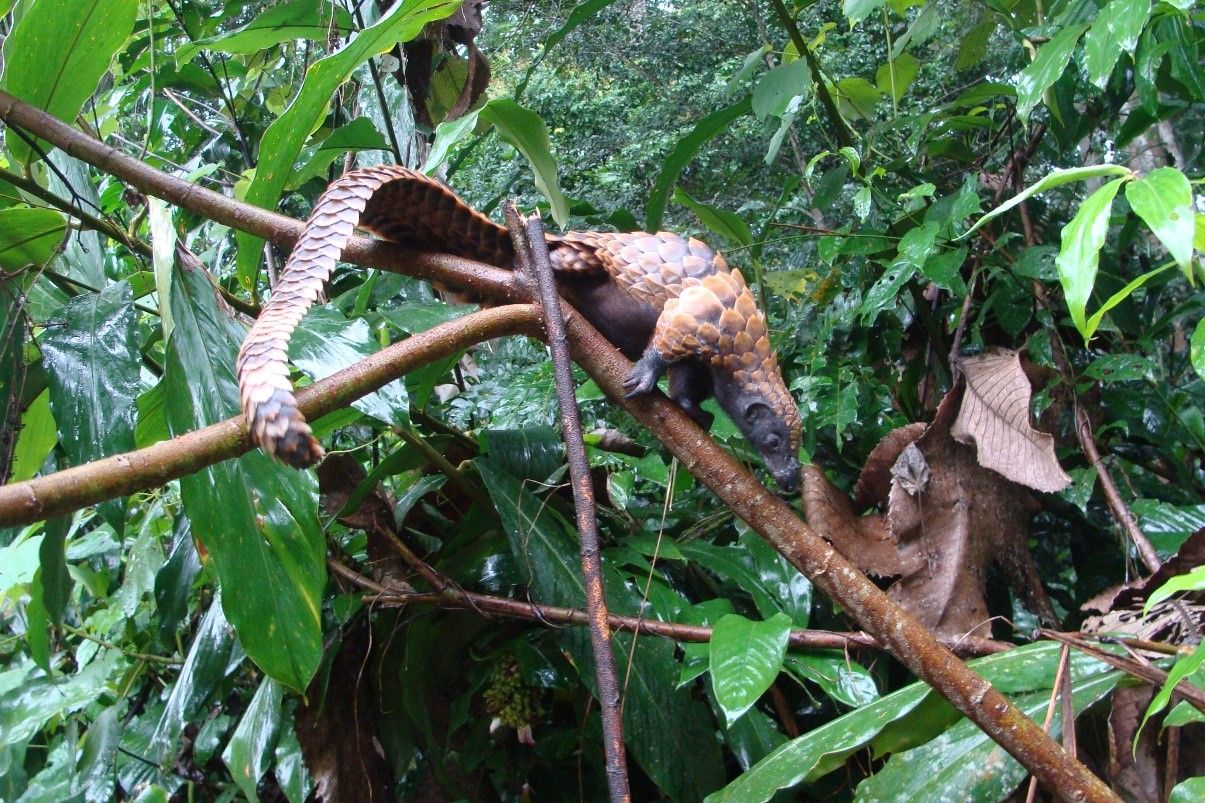Beekeeping Strengthens Community Forestry in Bolongo

A group of 80 participants—50 men and 30 women—from the Local Community Forest Concessions (LCFC) of Bolongo, located in the southern block of Salonga National Park (Lokolama sector, Oshwe territory), recently completed a beekeeping training program. This initiative marks a key step towards sustainable development, equipping local populations with valuable skills to improve their living standards.
Since 2021, six villages in Bolongo have held LCFC titles, thanks to Salonga Park Management guidance. Following a value chain analysis in 2023 that identified beekeeping as a lucrative opportunity, an intensive 15-day training program was organized last August by a beekeepers organization from Kongo Central province: the Plateforme des Associations des Apiculteurs des Cataractes (PLAAC).
Comprehensive and Practical Training
The training combined theoretical knowledge with hands-on experience, covering techniques such as crafting beehives from local materials, capturing bee colonies, and maintaining hives. Participants demonstrated remarkable dedication to mastering these skills, which will support sustainable forest management while creating a lasting source of income for their families and communities.
Equipping Future Beekeepers
The program also provided essential tools to help participants launch their beekeeping ventures. Distributed equipment included 30 hives, 15 beehives, and an array of tools: 60 pairs of gloves, 18 smokers, 60 hive lifters, 60 knives, 60 boots, 60 brushes, 60 beekeeping suits, 12 rolls of elastic thread, 12 20-liter cans, 18 lidded buckets, six basins, six honey maturators, and 60 practical manuals. These resources aim to support participants in establishing and expanding their operations.
A Promising Future
According to the expert consultant who conducted the training, the first honey harvest is expected in June 2025, with an estimated production of 300 liters from the 30 hives—approximately 10 liters per hive. Future assessments will evaluate the region’s melliferous potential and determine the number of annual harvests over the hives’ 25-year lifespan.
With honey priced at USD 3 per liter locally, this venture promises not only to boost the incomes of individual beekeepers but also to invigorate the Bolongo community’s economy. The Salonga National Park Management Unit, in collaboration with PLAAC, is already exploring pathways to connect local producers with larger urban markets, where demand for honey continues to grow.
This beekeeping initiative in Bolongo forms part of a broader strategy to preserve forests while providing sustainable economic opportunities for local communities. By harnessing natural resources responsibly, these efforts aim to enhance living conditions and foster environmental protection.



